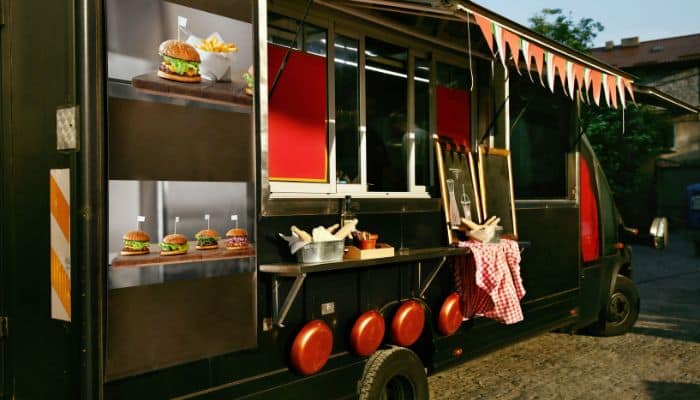The Beginner’s Roadmap to Starting a Food Trailer Business
The mobile food industry is hotter than ever, with ample opportunity to earn a profit. However, getting a successful business off the ground takes time, money and effort.
If you’re considering a food trailer operation, you must start on the right foot. Here’s everything you need to know about this lucrative food service business.
Why Start a Food Trailer Business?
The restaurant industry is among the most challenging in the hospitality sector — a reason why many people with a passion for quality food and customer service opt for a trailer instead. Fast food restaurants cost about $250,000–$400,000 to launch, including licenses and permits, insurance, inventory, equipment, location, and marketing. Conversely, a decent food trailer could cost about $15,000 to $75,000 — a more versatile and much more cost-effective alternative to large-scale food trucks.
Because they are less expensive than regular restaurants, you would have a much easier time expanding to a second location. Likewise, you can save money using your mobile eatery in your marketing approach.
How to Bring Your Mobile Kitchen to Life
You’ve decided a food trailer is the best option for pursuing a career in the food service industry — now, where do you begin? Here are seven steps to open a unique and profitable enterprise.
Think of Your Concept
If you want your food trailer to do well, it has to stand out from the competition — including restaurants. Likewise, you must know your intended customer base.
Consider what you want to sell and how to set yourself apart. For instance, you might be the only trailer selling a particular cuisine or have developed a distinctive menu item customers can’t find elsewhere. If one concession trailer offers traditional Mexican tacos, consider selling Korean beef tacos with a sweet bulgogi marinade instead.
Explore Funding Opportunities
Although less expensive than brick-and-mortar restaurants, you likely need to pursue various funding opportunities to get your food trailer up and running. Review small business loans, business credit cards, crowdfunding, personal loans and financing options to make your initial investment.
For instance, you might finance the cost of cooking equipment or the trailer itself. Remember to factor in recurring costs like gas, inventory, insurance premiums, maintenance and your point-of-sale subscription, too.
Find Your Concession Trailer
Buying your mobile eatery is among the more exciting steps in starting your business venture, but weighing the advantages and disadvantages of a truck versus a trailer is critical. Trucks are self-contained vehicles you can conveniently drive to various locations. A smaller one is also easier to maneuver on busy city streets.
However, a 30-foot truck may provide less space for cooking and prep than a 16- or 20-foot trailer. This is because trucks need room for the driver’s seat, motor and generator. You might also encounter more parking restrictions with a food truck.
Conversely, food trailers have more room for equipment and prep surfaces with greater layout customization. Yet, you’ll also face parking challenges, sometimes requiring two or more spaces. Ultimately, your decision will come down to cost, mobility, ease of operations and space.
Acquire the Appropriate Licensure
Before opening your venture, you must acquire the appropriate licenses and permits. First, you’ll need a business license to operate in your desired location. Those who hire staff must also obtain an employee identification number from the IRS.
Health and food service permits are also necessary to ensure clearance in meeting safety regulations. Likewise, you’ll need to get the required parking permits wherever you park.
Depending on where you live, your state may also mandate a seller’s permit, liquor license, hawker and peddler license, and an ice cream vendor license. Check with your local licensing office to ensure you have everything you need.
Develop a Practical Menu
You probably already considered menu items while developing your niche and business plan. Eventually, you’ll need to refine your offerings based on how practical it is to make, the ease of acquiring high-quality ingredients and potential revenue.
Suppose your food trailer business sells shawarma — a popular Middle Eastern street food. While you can prepare the meat to order in a matter of minutes, you’ll need to marinate it for at least one hour or overnight to ensure the best flavor. This is far more feasible than forcing customers to wait 45 minutes for menu items to cook all the way through.
Find Your Location
A bustling city or town is a great location to operate your food trailer. Some options include street parking, commercial districts, business parking lots, parks, farmers markets, college campuses, entertainment venues and sporting events.
However, you can’t just show up and start selling anywhere you want, so research parking laws, fees, hours and permits first. You should also get permission to set up in front of another company. Your best chance is to park near other food trailers — a good sign you’ll be allowed to operate and receive the foot traffic you need to make a profit.
Promote Yourself
In an industry worth $2.2 billion in 2023, with a growth rate of 13.3%, you can make excellent profits. You just need to market your business well.
A solid marketing strategy should entail a clear brand identity, a website with your menu and locations, and a comprehensive social media presence. Likewise, you could partner with other businesses and offer online ordering for an improved customer experience.
Launch a Success Food Trailer Business Today
There’s no better time than the present to start your mobile food venture. Operating one may be your best shot at breaking into the food service sector. Play it smart and your kitchen will be a huge success.



Comments are closed.